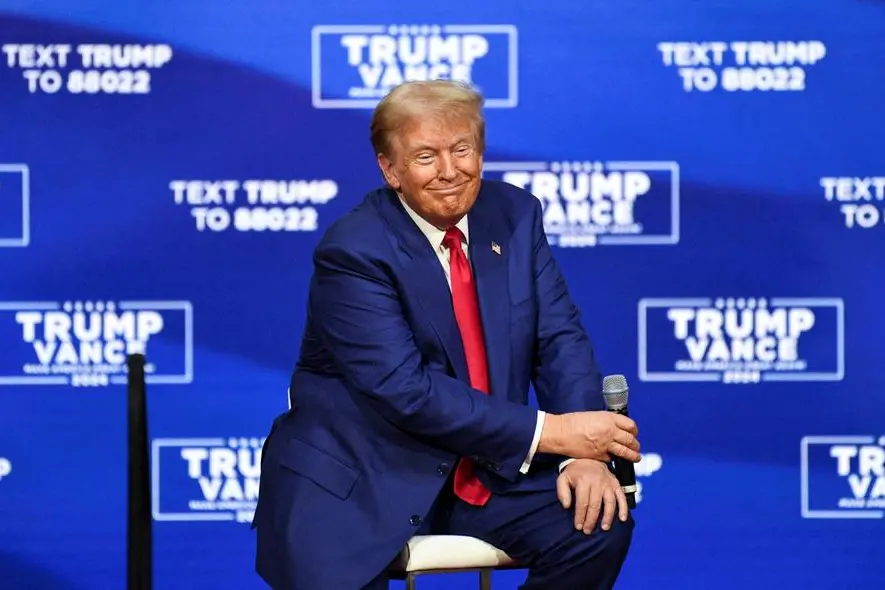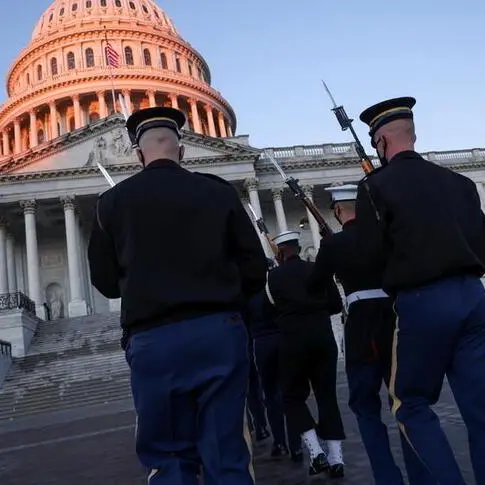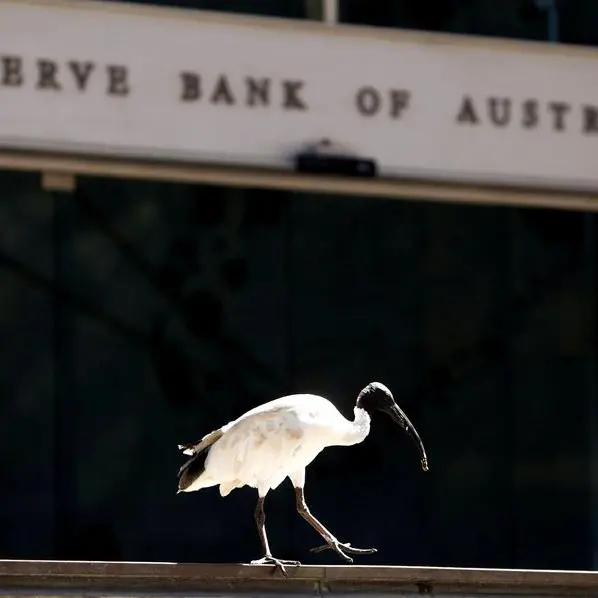PHOTO
LONDON - Donald Trump's broadsides against excessive U.S. dollar strength have some merit - but his position on how to tackle it remains vague and the only workable options available could upend broader U.S. financial markets in the process.
The Republican presidential candidate has regained a slight edge in his bid to return to the White House, according to betting markets that had made Democrat Kamala Harris the favorite since July.
With only three weeks to go before the U.S. election - investors now have to focus on what a second Trump presidency might mean for financial markets.
Many of his economic ideas have become more extreme during his four years out of office - including proposals for massive tariffs and sweeping tax cuts, questioning of Federal Reserve independence and potential immigration crackdowns and deportations.
But one argument remains constant and is rooted in some economic logic: his insistence the U.S. dollar is overvalued.
The bald statement is not very controversial, given that the dollar's inflation-adjusted trade-weighted index has climbed 20-30% over the past 10 years. Even International Monetary Fund analysis reckons the greenback was about 5-10% overvalued last year, with the currency gaining another 2-3% in 2024.
Trump's complaint is that excessive dollar strength has blunted U.S. export competitiveness, inflated the trade deficit and hurt the U.S. manufacturing sector and jobs. And many economists have some sympathy with that.
That greenback strength is due to the nefarious activities of foreign governments is harder to prove - even if there is broad agreement that U.S. trading partners would resist a weaker dollar at a time when the U.S. economy is already outperforming most of them.
Many others reckon the "cause and effect" around dollar strength works the other way.
U.S. economic outperformance - coupled with a cutting-edge U.S. tech sector and the unrivalled liquidity and size of U.S. financial markets at large - has drawn tens of trillions of dollars of private global investment to Wall Street securities over the past decade and inflated the dollar value into the mix.
If U.S. "exceptionalism" is real, the argument goes, then a historically lofty dollar valuation merely reflects that.
Any serious attempt to weaken the currency would likely risk upsetting these same global financial flows.
DEVALUATION MURMURS
Reports circulated earlier this year that Trump advisers, including former trade chief Robert Lighthizer, were seeking out ways to "devalue" the currency beyond employing basic trade tariffs.
It has never become clear exactly what this approach would involve, short of some sort of international pact to sell dollars on the open market. This is probably a non-starter, though, as few U.S. allies would likely be on board with such a plan, as they were during the marquee currency interventions in the 1980s.
What's more, the murmurs came in parallel with reports that other members of the Trump team were drafting proposals to implement political oversight of Fed interest rate decisions.
Threats to Fed independence may weaken the dollar over time, but only at the huge cost of undermining a key institution central to inflation control and confidence in U.S. financial markets.
MIXED MESSAGES
The messages are often inconsistent.
Trump switched tack of late and recently discussed protecting the U.S. dollar's reserve currency status by threatening countries that "leave the dollar" with 100% trade tariffs.
That has led to some head-scratching, as it appears to go against plans to shoo away foreign-state "manipulators" from holding reserves in the first place.
Attempting to clear up the confusion this week, another Trump adviser - hedge fund manager Scott Bessent - told the Financial Times that Trump really wants to retain the dollar's reserve-currency status and his tariff threats are just a "maximalist" negotiating stance likely to be watered down once talks begin.
Stephen Jen at currency hedge fund Eurizon SLJ said he agreed with Bessent that the size of the tariff rises Trump has been throwing around are unlikely to materialise and are probably just gambits that will be used to force concessions.
Jen questioned the wisdom of forcing the exchange rate lower through coordinated interventions or by appointing a puppet at the Fed that would print money on command.
But he said recent inflation surges in the United States and Europe relative to Asia have resulted in substantial real appreciation of both the dollar and euro against Asian currencies. And he felt the best way to deal with that was with import tariffs. "The dollar is overvalued and is hurting the U.S. tradeables sector," he said.
And yet this underlines another major problem - no one actually knows what Trump may be planning apart from second-guessing tidbits of speeches and parsing second-hand reports.
But if the only sure-fire way of pushing down the dollar is by either undermining the Fed or imposing a tax on foreign accumulation of U.S. assets, then the whirlwind that may whip up would make dollar valuation the least of everyone's worries.
The opinions expressed here are those of the author, a columnist for Reuters
(Writing by Mike Dolan Editing by Matthew Lewis)





















